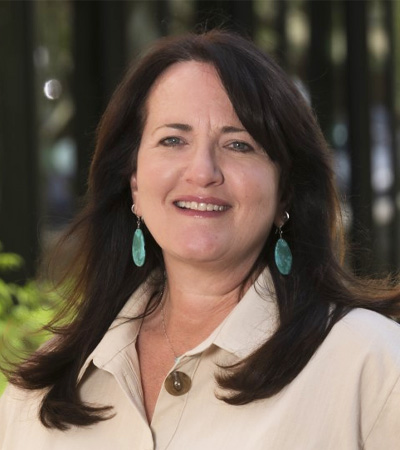Catalyzing Tucson, Food Deserts and Reducing Childhood Obesity – An Update

Tax credits could ‘move the needle’ to reduce childhood obesity, health and wellness inequities in Tucson schools and their communities.
Written by David Mogollon
Tucson’s introduction to the Catalyzing Communities to Prevent Obesity initiative came in fall 2018, when University of Arizona nutritional sciences professors Cynthia Thomson, PhD, RDN, and Scott Going, PhD, hosted an Obesity Think Tank symposium at the UArizona Mel and Enid Zuckerman College of Public Health.
Erin Hennessy, PhD, a Tufts University Friedman School of Nutrition Science & Policy assistant professor, associate director for the research program ChildObesity180 and Catalyzing Communities co-investigator, gave the keynote address. Catalyzing Communities is an initiative within ChildObesity180, an effort to bring together scientists, practitioners and stakeholders to find solutions to the childhood obesity epidemic.
The Centers for Disease Control and Prevention noted U.S. youths’ prevalence for obesity was 19.3% among those age 2-19 and affected about 14.4 million children and adolescents. Among Hispanic and non-Hispanic Black children, that figure was higher at 25.6% and 24.2%, respectively. Obesity raises health risks for many medical conditions, including diabetes, hypertension and heart disease.
Dr. Hennessy spoke about childhood obesity as not just eating too much or exercising too little, but as disparities in social determinants of health and where you live. Obesity is higher in less affluent areas with fewer exercise options and more likelihood “food deserts” exist where affordable or quality fresh food may be scarce. A study last year determined about 18% of Tucsonans, or 94,000 people, live in food deserts.
Fundamentals for change for children, she said, include school food improvement, nutrition education, family and community engagement, leadership and stakeholder buy-in, and a commitment to built-environment and other program efforts to support better health and wellness.

Sabrina Plattner
“We knew about the work ChildObesity180 had done with a famous research initiative in the City of Somerville, a small community outside of Boston where I actually student-taught as a grad student,” said Sabrina Plattner, senior health educator on the Childhood Obesity Prevention Initiative under Dr. Thomson in the Zuckerman Family Center for Prevention and Health Promotion.
“We thought, Tucson is doing so much work in the area of health, wellness and nutrition, and physical activity, so why couldn’t we be like Somerville?”
Shortly after the symposium, Plattner was elevated as co-chair of Activate Tucson, created in 2004 out of the Mayor’s Healthy Tucson and YMCA’s Pioneering Healthier Communities initiatives. Both those initiatives were led by Annemarie Medina, Activate Tucson’s other co-chair and founder and now UArizona Health Sciences corporate and community relations director.
“I roped Annemarie into joining Catalyzing Communities with me early, thank goodness,” Plattner said. “When I asked her, she said, ‘Absolutely! I’m on board.’ She’s awesome.”
And just as she traveled to the University of Michigan to learn about Project Healthy Schools – the basis for Healthy Schools Tucson, one of the programs in the Childhood Obesity Prevention Initiative, Plattner, went to Boston in February 2020 to learn more about the Catalyzing Communities approach. Medina and Krista Romero-Cardenas, then with Pima County’s Healthy Pima program, accompanied her.
“The idea was the county, city, us and others, we’ve all been doing these great programs. I’m delivering lessons, working with communities, putting in gardens and trying to do all this amazing stuff. But we’re still not seeing that needle move the way it should,” Plattner said. It was recommended they construct a “causal loop” on the interplay of community factors affecting obesity in Tucson to help clarify areas where momentum might be built.
Medina called the trip eye opening.
“Learning about system dynamics and group model building gave us the tools to transform our approach. By developing the causal loop diagram that demonstrated ways our systems were interconnected, we’re better able to develop richer, more comprehensive partnerships and interventions to address health and wellbeing in our community,” she said. “That allowed us to focus on systems and policies to ensure equitable access to healthy environments for all our residents.”

The Boston trip led also to creation of the Tucson Child Health Working Group, an Activate Tucson subcommittee of a dozen stakeholders in child and family services that met biweekly for more than 18 months to create a Catalyzing Tucson action plan to improve their own more expansive, collaborative and participatory model to address childhood obesity here.
Today, Tucson is among several communities partnered with Catalyzing Communities. The one-year pilot project for its inclusion funded by the Brookings Institution has turned into a four-year federally funded study in which the Working Group continues to develop ideas to better address childhood obesity. These serve as possible programming for Working Group members as well as advocacy points for Activate Tucson. They revolve around three areas, Medina said:
- IDENTIFYING UNDERLYING BELIEFS DRIVING CHILDHOOD OBESITY AND POVERTY IN TUCSON: The Working Group collectively identified larger forces at play in the community that contribute to, and result from, childhood obesity and poverty in the greater Tucson region. These include complex factors like education funding, corporate values and citizen advocacy, and social and emotional health as crucial factors that shape related behavior and health outcomes.
- LEVERAGING STATE TAX POLICY TO IMPROVE CHILD HEALTH: A key insight exposed by the group was the impact of school funding on extracurricular activities that promote health, like those offering high-quality physical activity or nutritious food. It is taking steps to leverage a unique and currently under-utilized mechanism that allows Arizona residents to direct tax credits towards those schools at highest need to ensure all school children have access to high-quality programs to improve health.
- STRESS REDUCTION STRATEGIES TO IMPROVE MENTAL AND PHYSICAL HEALTH: The group identified a strong connection between mental and physical health for children in Tucson. Stakeholders are working together with other youth-serving agencies to understand strategies already in use to help young people identify and manage stress, and to identify opportunities so all children in Tucson have access to quality care they need to ensure positive mental and physical health.
Plattner is most excited about the potential that improving school tax credit distribution, which she called a structural inequity now, offers by getting people in more affluent areas to give to underserved schools.
“We all know we’re underfunded in Arizona for public schools,” she said. “If we could change the tax credit structure to be more equitable, we can change a lot, and provide more funding for public education. I mean, that’s just been chipped away in Arizona to the point we’re 49th in the nation for per pupil spending.”
That hurts child health and wellness as well as education, Plattner added.
Save the Date
Tucson Child and Family Health and Wellness Symposium – Changing the Course Through Collaboration
Come together to re-imagine and re-energize our vibrant multi-sector coalition to address child and family health in our community. Engage with community partners and share your work to discover new opportunities for partnerships that reduce duplication and increase impact. Let’s work together to change the course!
Keynote speaker will be Christina D. Economos, PhD, professor and chair of the Division of Nutrition Interventions, Communication and Behavior Change, the New Balance Chair in Childhood Nutrition, and dean for research strategy, Tufts University Friedman School of Nutrition Science and Policy; professor of public health and community medicine, Tufts University School of Medicine; lead investigator for Catalyzing Communities to Prevent Obesity, and co-founder and director, ChildObesity180; and vice chair of the National Academies Roundtable on Obesity Solutions.
For more information, click here.*
*A button to register will be added later at this link, as well as more details on the full agenda and other presenters and panel discussions.
When: Sept. 22, 9 a.m. to 2 p.m.
Where: University of Arizona Health Sciences Innovation Building, HSIB Forum, 1670 E. Drachman St., Tucson
Contact: Annemarie Medina, annemariemedina@arizona.edu
This event is hosted by the University of Arizona Health Sciences, UArizona Mel and Enid Zuckerman College of Public Health, Activate Tucson, and Catalyzing Communities to Prevent Obesity – a ChildObesity180 initiative hosted through Tufts University.
-###-

